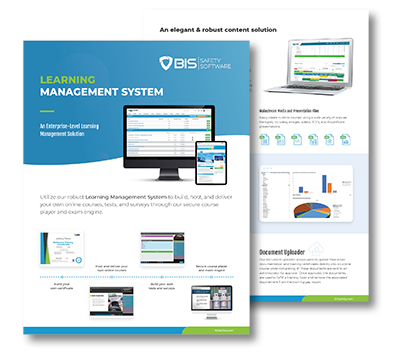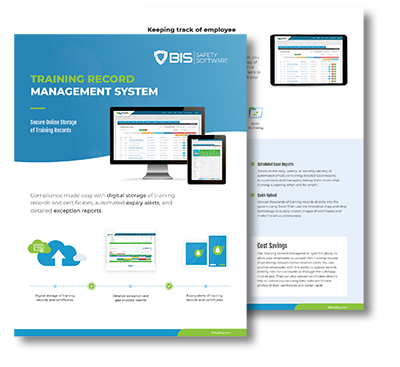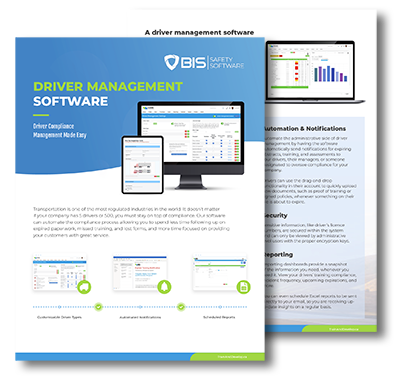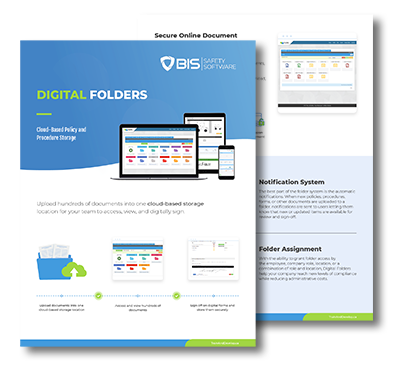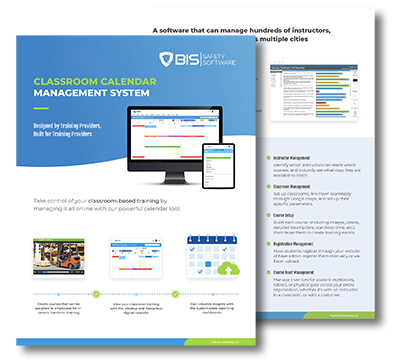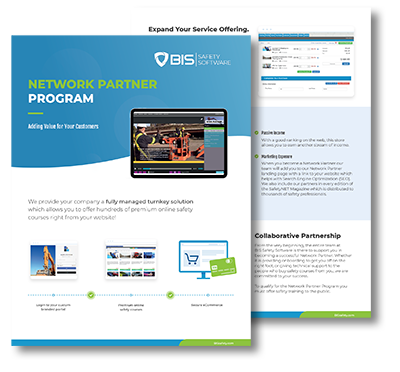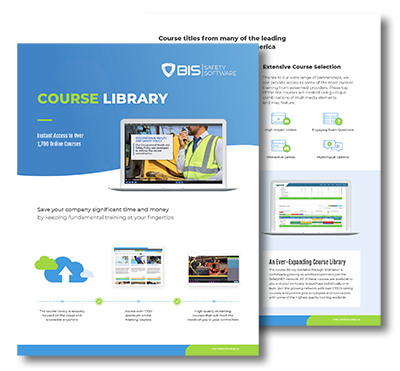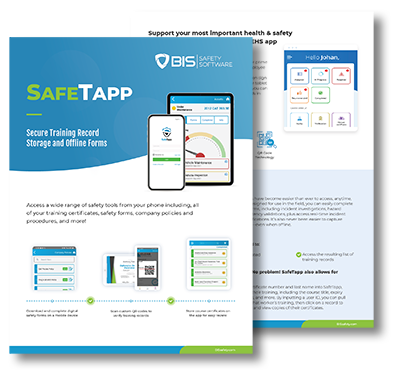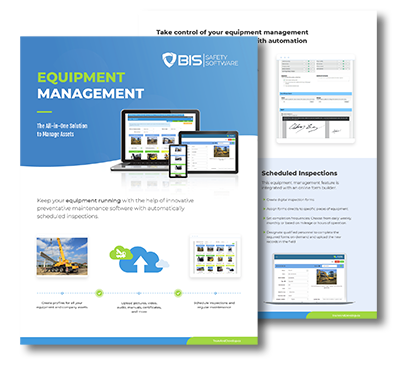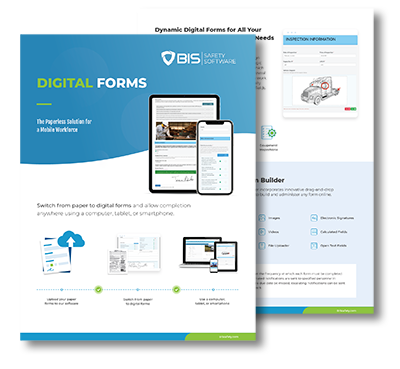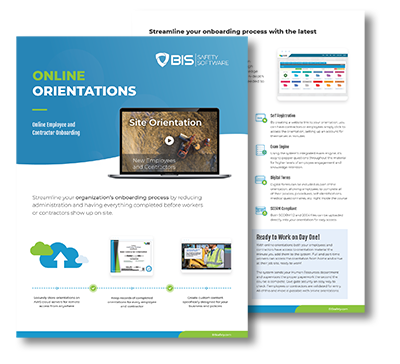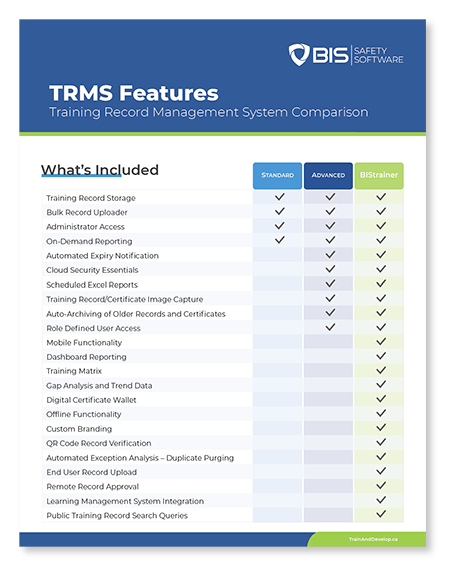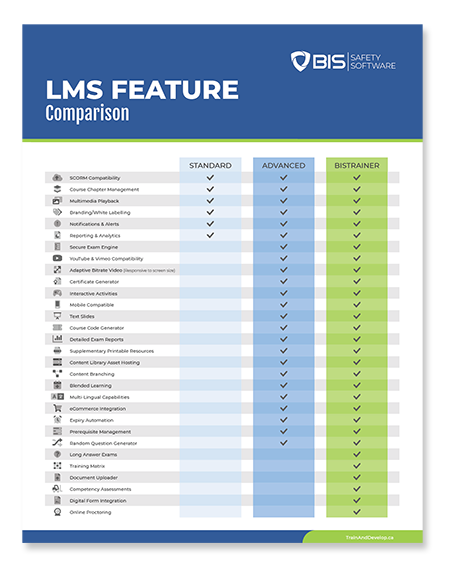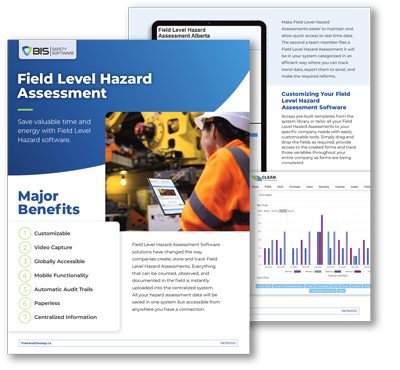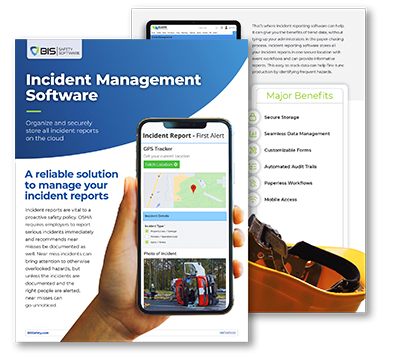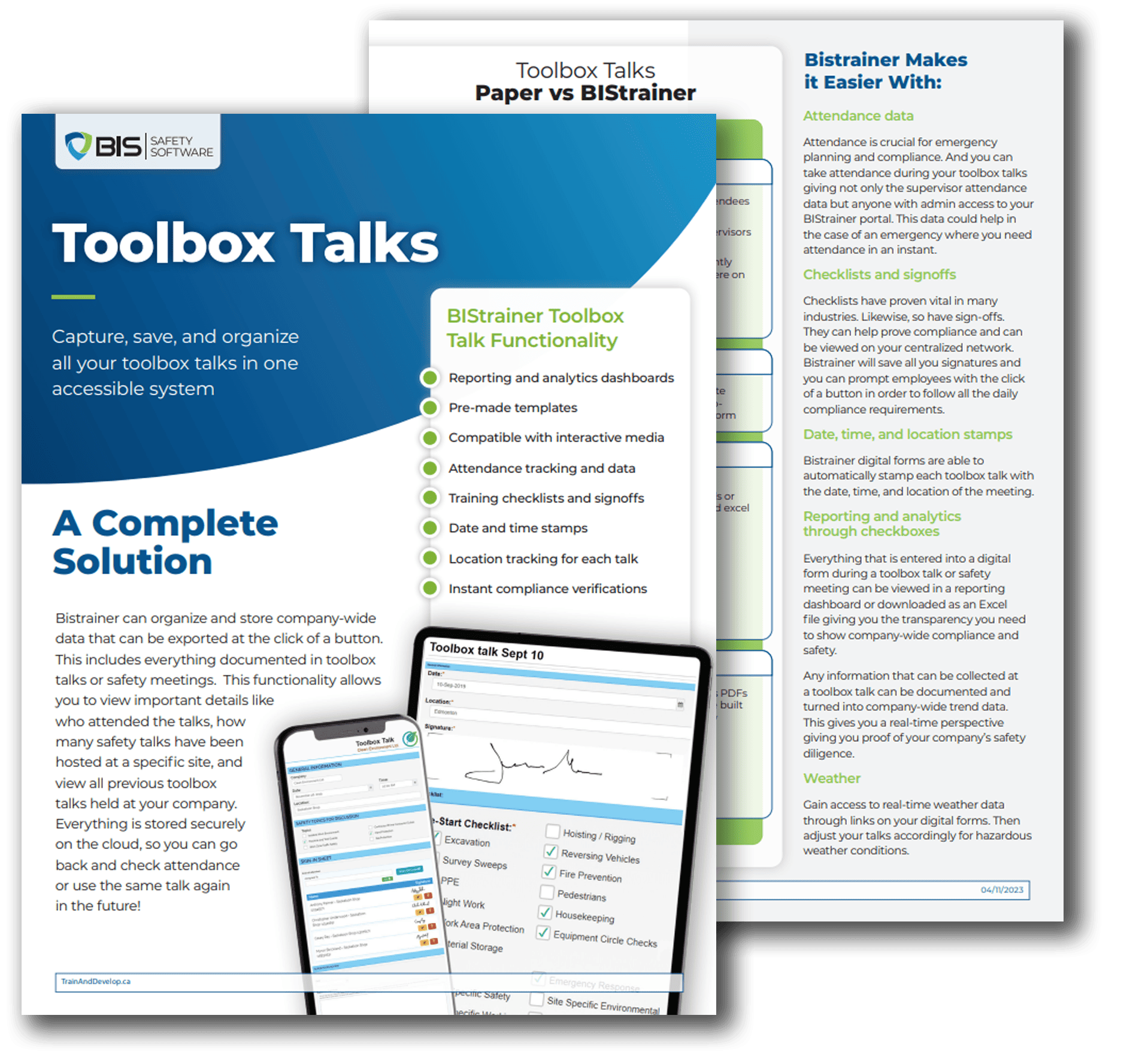Daily Pre-Trip Inspection Training
Daily Pre-Trip
Inspection Training
(NSC Compliant)
Daily Pre-Trip Inspection
Online Training Course
What are NSC Compliant Daily Pre-Trip Inspections?
The use of commercial vehicles brings great responsibility for companies since roads and highways are shared with others. The consequences of an accident can include major property damage, serious injuries, and even lost lives. This online course teaches drivers how to conduct daily pre-trip inspections for vehicles, based on the National Safety Code. The course uses professional videos to demonstrate exactly how inspections must be carried out.
The Canadian Council of Motor Transport Administrators (CCMTA) created the National Safety Code to reduce the fatalities, injuries, and property damage caused by highway accidents. The code is composed of 16 standards, and daily trip inspections for commercial vehicles are covered by NSC Standard 13. By following the code, commercial carriers can operate their fleets legally and safely.
A daily pre-trip inspection is mandatory for any commercial vehicle as defined by the NSC:
A truck, tractor, trailer, or any combination, with a registered gross vehicle weight that exceeds 4,500 kg.
A bus that is designed for passengers, with a capacity of more than 10, including the driver. Buses are not subject to the requirement during personal use.
In the NSC language, an inspector is anyone who can enforce federal or provincial regulations, while the motor carrier is the party responsible for the commercial vehicle – owned or leased.
Get Your Recognized Daily Pre-Trip Inspection Training Certificate Today!
Get Your Recognized Daily Pre-Trip Inspection Training Certificate Today!
Get your Daily Pre-Trip Inspection Training (NSC Compliant) Certificate in as little as an hour!
Daily Pre-Trip Inspection Training Course Preview

The completion time of this course is about 1 hour, which include practical exercises and testing. The passing score is 80%, and participants earn a certificate that can be downloaded. Virtual proctoring may be available for an additional fee.
Universally Compatible
 This Ground Disturbance online course was created using standards that will allow playback on most internet capable devices with standard web browsing capabilities including Apple’s iTouch, iPad, and iPhone, as well as most other smart phones and tablets including those with Android and Windows operating systems.
This Ground Disturbance online course was created using standards that will allow playback on most internet capable devices with standard web browsing capabilities including Apple’s iTouch, iPad, and iPhone, as well as most other smart phones and tablets including those with Android and Windows operating systems.


Duration
Average Completion Time
The average completion time is 1 hour. Individual times will vary depending how long is spent on each module.

Testing
Knowledge Assessment
Testing is included to reinforce the training. You are allowed three attempts to achieve a passing mark of 80% or greater.

Certificate
Certificate of Completion
Upon successful completion of this course, a certificate will be safely stored on your account and is available to download & print.
























